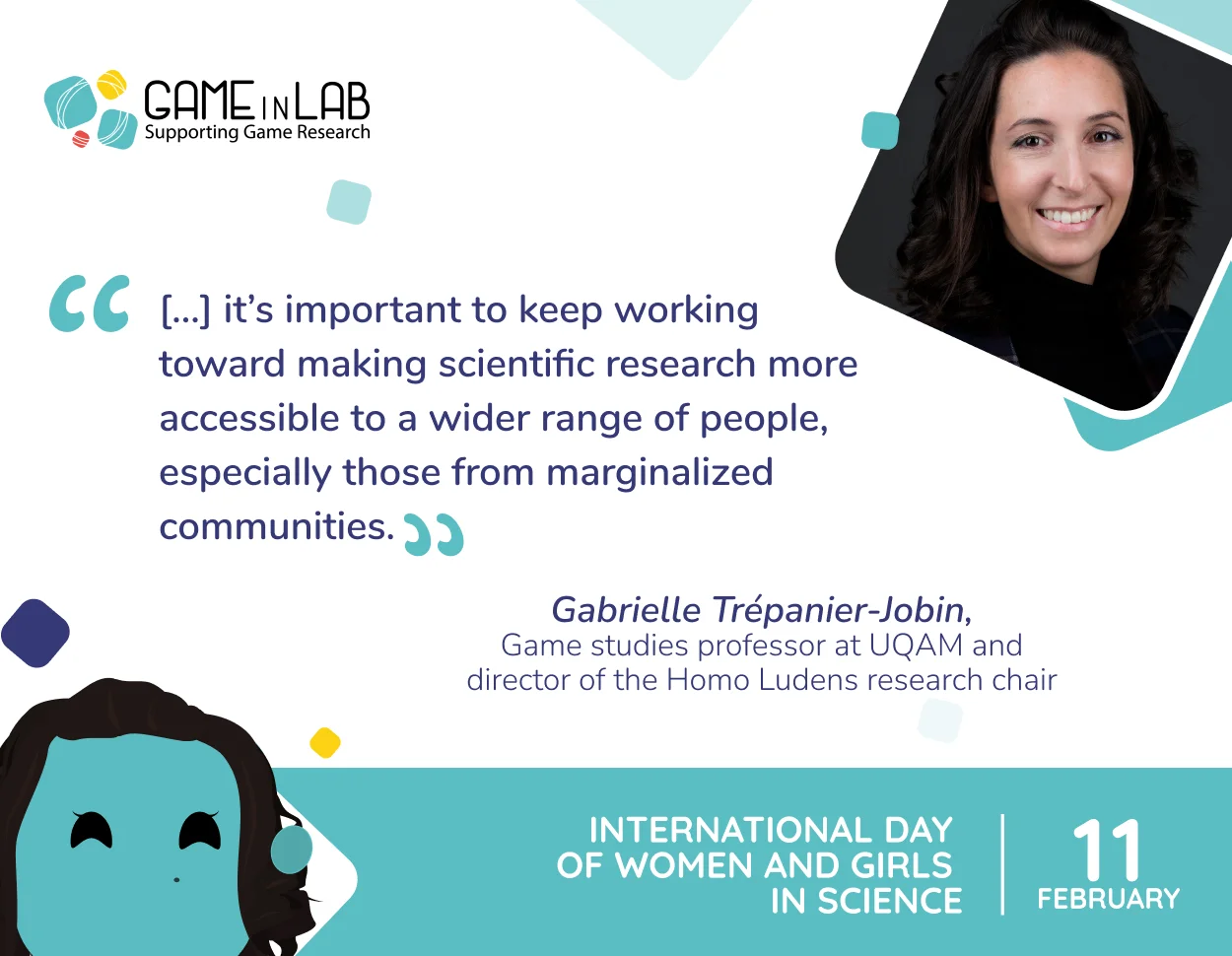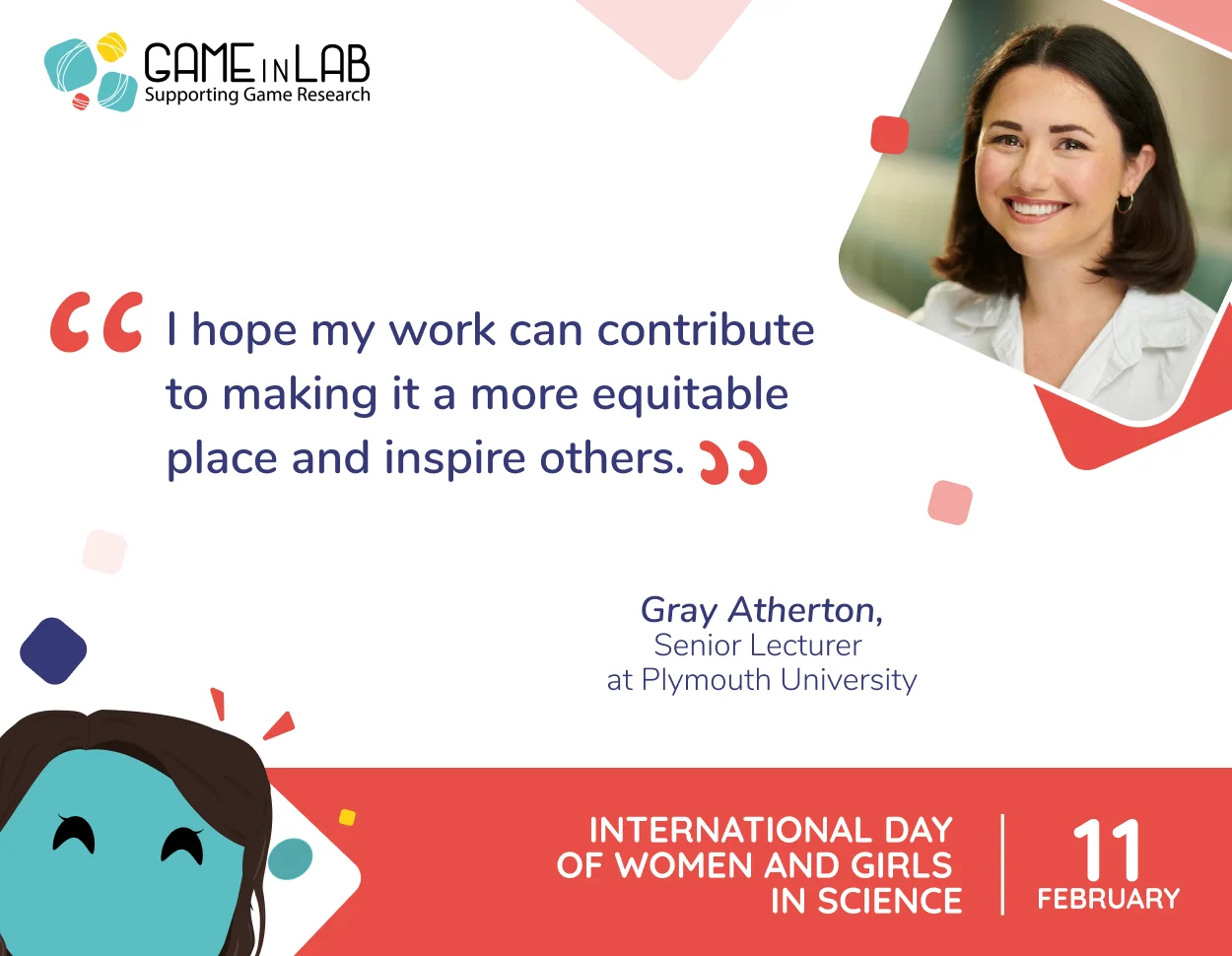- News
Game in Lab celebrates its women researchers on International Day of Women and Girls in Science
Women in Science
Since its launch in 2018, Game in Lab has encouraged and supported the generation of knowledge on board games by hosting PhD students under CIFRE contracts and also by funding international research projects on board games.
Currently, only 33% of researchers worldwide are women, according to UNESCO—a figure that highlights the persistent inequalities in research and science. Game in Lab appears to be more inclined towards gender parity, as its program includes 45% women among the supported researchers.
Elsa Brais, Gray Atherton, Melissa Rogerson, Chloé Germaine, Anick Pelletier, Léa Martinez, Ariela Holanda, Marion Sourd, Rebecca Sayeck, Gabrielle Trépanier Jobin… these are just some of the women in science that Game in Lab is proud to honor each year on February 11th.
Two researchers
Among our researchers are Gray Atherton, Senior Lecturer at Plymouth University, and Gabrielle Trépanier-Jobin, Professor at UQAM et co-director of the Homo Ludens research chair, they study the impact of games on human behavior.

Gabrielle Trépanier-Jobin
Gabrielle Trépanier-Jobin is a Game Studies Professor at Université du Québec à Montréal (UQAM), and co-director of the Homo Ludens research chair. At the very start of her career, she led research projects about cinema and television from a feminist point of view. Her PhD thesis focuses on the role of alternate and parodic representations in denaturalizing gender stereotypes. She also started looking into video games while video game studies were barely a subject in french-speaking universities. During her MIT Comparative Media Studies | Writing post-doctorate, she kept working on gender stereotypes and parody within game studies. Later, she started as a Professor at UQAM and led a research project about player immersion, funded by FRQSC, along with a study on diversity, equity and inclusion in the video game industry, funded by CRSH. Recently, she started a project about raising young people awareness about violence, funded by Game in Lab.

Gray Atherton
Gray Atherton studies how neurodiverse individuals, particularly those with autism, perceive the social world, focusing on individual differences in social processing. Her research explores the strengths inherent to neurodiversity and how they can challenge stigma surrounding developmental conditions like autism. She also investigates anthropomorphism and its relation to social processing in autism, using virtual and augmented reality to create anthropomorphic experiences. Additionally, Gray researches embodied social processing, including the impact of movement on self-perception and social interactions, with applications in gaming and mental health. She is particularly interested in how games can improve the social lives of neurodiverse people, by introducing communities of like-minded individuals to one another through a hobby that builds on strengths and passions.
